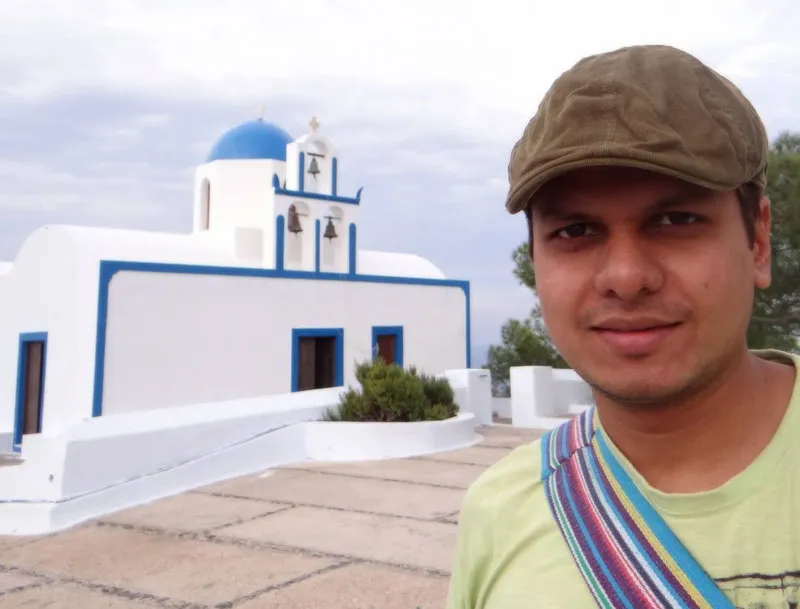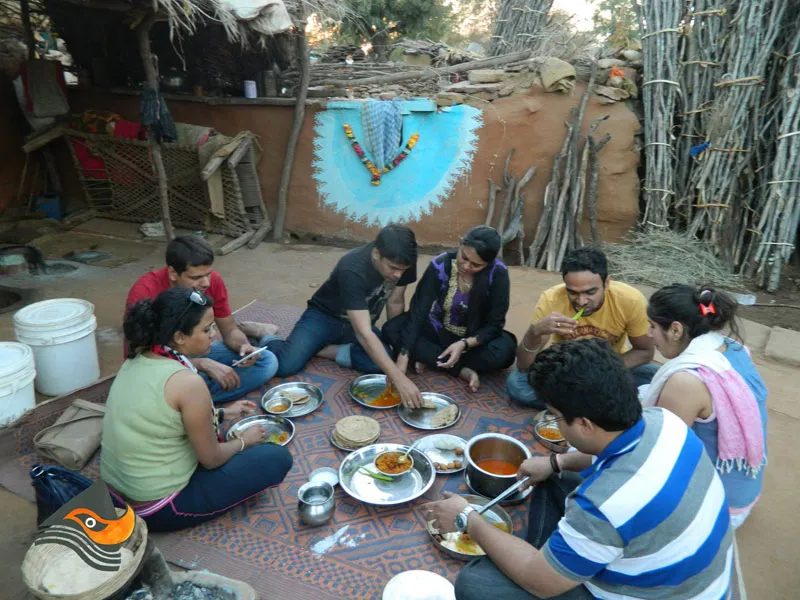The Folk Tales: marrying rich travel experiences with social enterprise
Mahatma Gandhi once famously said: “The future of India lies in its villages.” Today, India’s youth is keen to discover the beauty and authenticity of rural India. To help them and to also help Indian villages in the process, software engineer-turned-travel writer Gaurav Bhatnagar set up The Folk Tales.

The delightfully named enterprise arranges rural experiences for travellers and works with local change organizations in villages to share the earnings and ensure that the villages also benefit from the program.
As Gaurav puts it: “We bring together responsible rural travel experiences and urban travellers to directly impact rural economy and promote sustainability.”
But, a traveller with The Folk Tales is never merely an observer. These experiences are designed for those who can immerse in local life and take back valuable knowledge. So, it’s not about looking at ancient temples, visiting heritage sites or even just driving through the villages.
It aims to create a culture where visitors to a village mingle with the local folk, learn from elders in the village and also experience the rural life. At the same time, it seeks to break the misconception that rural life is difficult or uncomfortable.
One unique feature is the 'Reverse Learning Program' designed for school and university students, which includes activities along with the local residents, enabling them to bond with and learn from each other.
“They basically live their lives, cook food with them, dress like them, participate in the school as students, not teachers,” explains Gaurav.
“This is completely the opposite of volunteerism where you go to a village to teach them something; here you go to learn. They are more sustainability conscious, we don’t have to teach them anything.”
The Folk Tales is therefore targeting university students and schools at this stage. Another target customer for The Folk Tales is the foreign traveller who wants to see an India beyond the Taj Mahal and palaces of Rajasthan.

“We offer them a combination of both, where we give them a home stay in a village, but not too far from the typical tourist destinations,” he says. So the tourists can experience village life and yet not miss out on the popular attractions.
Through this program, Gaurav also hopes to educate the Indian youth about age-old concepts such as organic farming, folk songs, traditional medicine, folk cuisine and the education system.
“Travel is one way to sensitize urban dwellers towards India's cultural and scientific heritage that is still surviving in villages,” he says.
To find new destinations, Gaurav travels frequently, checks out the destination himself and ensure that it meets his requirements. Of all the destinations he has seen over the last one year, only half of them have turned into The Folk Tales destination. About 100 people have travelled with The Folk Tales in the past year.
The company is in the process of joining an incubator programme and will seek crowd-funding or angel funding in the coming months, he added.
The Folk Tales now aims to tie up with ‘authentic’ NGOs and include them in the itineraries for travelers and support the work in handicrafts, music and other activities that promote Indian culture.
It is also looking to tie up with schools in India and international universities for the 'Reverse Learning Programs’. Lastly, he hopes to engage travelers from Europe and America for organized group travel.







